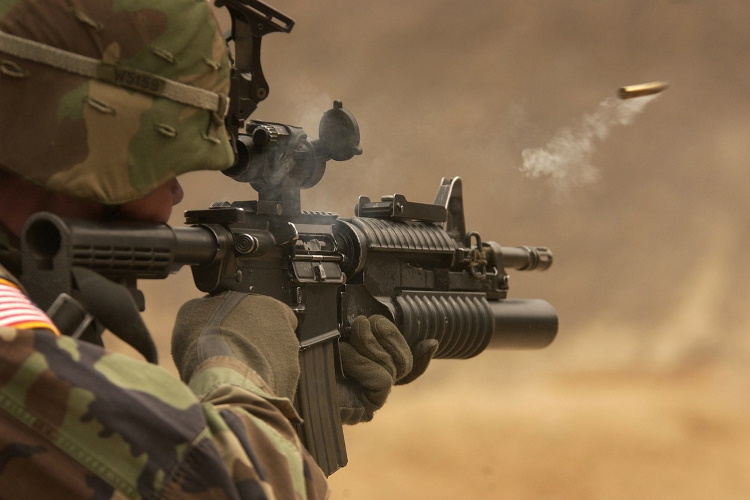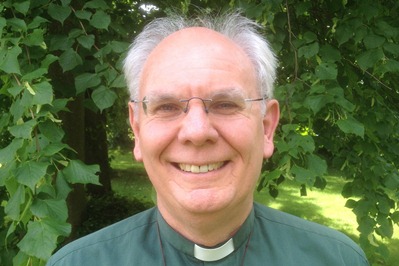Opinion column

Make me an instrument of your peace
Philip Young has compiled a paper for consideration by the Third Order of Saint Francis, of which he is a member, explaining the importance of being a peacemaker in this modern world. He shares his main points with us here.
As Franciscans we commit ourselves ‘to seek to spread the knowledge and love of Christ, and to promote the spirit of love and harmony as the family of God. To this end, one of our greatest commitments is to be men and women of peace.
Franciscans are glad to use the prayer which has become known as the ‘Prayer of Saint Francis’ even though Francis himself did not write it. We pray, ‘Lord make me an instrument of your peace, where there is hatred let me sow love’.
How do we sow the seeds of love in a world which, in so many ways, is torn apart by continuing hatred and violence?
To help us answer this I first want to look at warfare as it is today. In order to become peacemakers, we must see clearly what the task involves. If we want to beat our swords into ploughshares, we must take a clear look at what a 21st century ‘sword’ looks like.
Our task to be peacemakers looks enormous. A number of inventions have made war far more deadly and far more expensive. The invention of gunpowder, the internal combustion engine, the invention of flying machines and rockets, the invention of radar, and perhaps, most frightening of all, the invention of weapons of mass nuclear destruction. The latest technologies using satellites and computers means that we have moved a long way in the history of warfare from a sword at the end of a man's arm to the era of mass destruction at the touch of a remote button.
In one profound way nothing has changed. As Franciscans we like to keep it simple following the simplicity of Christ who said that loving our enemies is always the way. Two 20th century leaders have shown us the way of love and non-violence and we would do well to study their methods:
Gandhi encourages us by saying, ‘When I despair, I remember that all through history the way of truth and love have always won. There have been tyrants and murderers, and for a time they seem invincible, but in the end they always fall. Think of it – always’.
And Martin Luther King encourages us to choose the way of love by saying, ‘Darkness cannot drive out darkness, only light can do that, hate cannot drive out hate, only love can do that’.
As part of our commitment to be instruments of peace perhaps we can study the non-violence of Gandhi and King and apply it to our own peace making.
So back to our present. How do we use love in an era of huge military might? We must have faith in the way of truth and love. Love is far stronger than nuclear blasts and military strength. Love unites us and builds us into a strong world community whereas military strength is largely destructive and solves few problems.
If we are to follow the way of truth, then we must face up to the fact that spending on the military is way out of control and is, I believe, immoral. Military spending is the big elephant in the room of modern life. Of course, it is in the interests of the military and the business world for ordinary people not to think about this. Not dissimilar to the tobacco companies wanting to hide the potentially cancerous consequences of their product. Therefore, it is up to peacemakers to shine a light on the truth. So, we need to become better informed and more active and vocal in our opposition to huge military spending.
Does war ever bring about peace? Can I recommend a series of five programmes entitled ‘Once Upon a Time in Iraq’, which can be found on the BBC iPlayer? These five programmes let the ordinary people of Iraq have their say and are a very convincing commentary on the mess of war left after the invasion of Iraq in 2003. If you need convincing that violence breeds more violence, then this is a powerful presentation of the legacy of this particular war.
In the end the different warring parties have to sit down and talk. We have examples of this working in South Africa with the Truth and Reconciliation Commission. In Northern Ireland, the peace process took years to bring about peace and is an ongoing process. At present there are peace talks between the different factions in Afghanistan. We pray for a good outcome. Our calling could be to keep well informed about all attempts to bring peace and reconciliation in our world and to support the work of the United Nations.
We would do well to promote the Charter of the United Nations adopted at its inauguration in 1945. It starts, ‘We the Peoples of the United Nations determined to save succeeding generations from the scourge of war, which twice in our lifetime has brought untold sorrow to mankind…’ As part of our commitment to be peacemakers we would do well to read the whole Charter and to support the ongoing work of peace-making promoted by the UN.
It is not easy being a peacemaker in 2020 because so many still think that war is a necessary evil in our modern world. This is what makes the work of a peacemaker so important. It is up to all of us to explore and promote peace in an active and imaginative way.
Can I encourage you to believe in the power of love and leave you with a quote from Jimi Hendrix? ‘When the power of love overcomes the love of power the world will know peace’
And finally, the International Prayer for Peace
‘Lead me from death to life, From falsehood to truth,
Lead me from despair to hope, from fear to trust,
Lead me from hate to love, from war to peace,
Let peace fill our heart, our world, our universe.’
To read Philip’s entire paper, click here.
The image above is courtesy of WikiImages on pixabay.com
 Philip is an Anglican, Quaker, and a member of the Third Order of Franciscans, and now lives in Felixstowe. Until July 2014 he was the Diocesan Environmental Officer for the Norwich Diocese. In June 2017 he stood as an Independent Candidate for the General Election in the Suffolk Coastal Constituency. He is now Associate Priest at St. John and St. Edmund in Felixstowe and a freelance writer on spiritual and political matters. He is available to run Quiet Days, give talks, presentations or to preach and can be contacted at philipyoung@btinternet.com. Philip is developing a new website www.revolutionoflovenow.com.
Philip is an Anglican, Quaker, and a member of the Third Order of Franciscans, and now lives in Felixstowe. Until July 2014 he was the Diocesan Environmental Officer for the Norwich Diocese. In June 2017 he stood as an Independent Candidate for the General Election in the Suffolk Coastal Constituency. He is now Associate Priest at St. John and St. Edmund in Felixstowe and a freelance writer on spiritual and political matters. He is available to run Quiet Days, give talks, presentations or to preach and can be contacted at philipyoung@btinternet.com. Philip is developing a new website www.revolutionoflovenow.com.
The views carried here are those of the author, not of Network Norfolk, and are intended to stimulate constructive and good-natured debate between website users.
We welcome your thoughts and comments, posted below, upon the ideas expressed here.